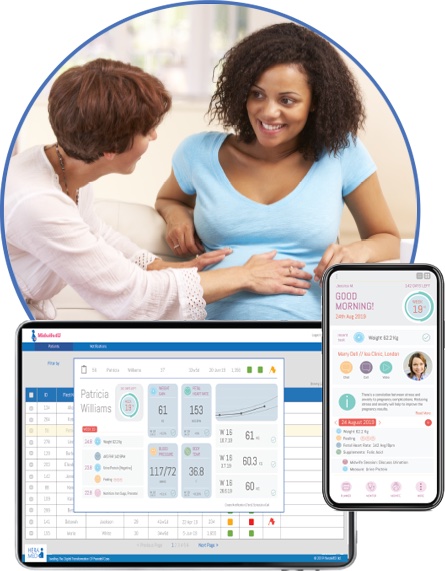Medical data and technology company HeraMED Limited (ASX:HMD) has entered into a strategic collaboration agreement with GPEx (SA), an organisation that delivers innovative solutions for primary care, including education and training, GP shared care programmes, workforce solutions and clinical trials.

The strategic collaboration will evaluate the deployment of the HeraCARE digital monitoring and management platform in high-risk pregnancies in regional and remote South Australia, with the aim of ultimately improving outcomes and experiences, increased monitoring, decreasing face-to-face antenatal visits, and easing the burden on the health system.
Pregnant women often face challenges when navigating healthcare during pregnancy. These challenges can be amplified for women who are at high risk in their pregnancies compounded by living in regional and remote locations.
HeraCARE allows expectant mothers to measure vitals at home via a mobile app and several smart connected devices, including a fetal heart rate monitor, blood pressure and glucometer. Doctors may then remotely monitor the mother and baby via a dashboard, improving the experience of telehealth consultations, identifying early complications, and providing increased peace of mind during pregnancy.
The real-time data-sharing and smart alerts enable close monitoring, early identification of complications, optimised and customised care plans and improved patient outcomes. Benefits include personalised remote monitoring for high-risk pregnant women, reducing in-person doctor visits and incorporating telehealth and virtual meetings.
Terms of the Collaboration:
Pilot phase: 80- 100 pregnancies
This is a paid pilot at commercial rates for the set-up, customisation, maternity care plans, low level integration training, HeraBEAT and ongoing support.
Post Pilot success: revenue and activity share model between GPEx and HeraMED
The South Australian pilot seeks to deliver the following outcomes:
- Demonstrate and evaluate the platform's clinical usability, patient satisfaction, value for money and economic benefit;
- Enhance accessibility, consistency, and quality of maternal care;
- Enhance the healthcare experience for high-risk pregnant women and their families;
- Increase productivity of the health system by accommodating a higher volume of expectant
mothers; and
- Demonstrate safe and effective use of the remote monitoring platform that could be adopted by SA Health as a shared care model for patients with high-risk pregnancies in the future.
Adoption of this digital technology has the potential to deliver significant patient and system benefits including:
- Reduced travel time for midwives and ability to closely monitor high-risk expectant mothers;
- Reduced travel time for expectant mothers;
- Improved patient experience, by reference to travel time, better education and informational outcomes, frequency, and precision of monitoring;
- Increased activity and efficiency, by reference and comparing remote monitoring and telehealth session effectiveness and time compared to in-office traditional model of care;
- Increased patient satisfaction and peace of mind;
- Identified interventions on potential adverse outcomes not likely to have been identified during ordinary standard of care; and
- Incidents of additional teaching/training required for expectant mothers beyond standard care.



